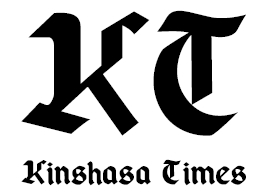KINSHASA: Police in the Democratic Republic of Congo prevented a protest against President Joseph Kabila from taking place in Kinshasa Saturday, with officers occupying the square where the planned rally was due to occur, an AFP journalist said.
An opposition movement dubbed « Rassemblement » (the Gathering) had called for a demonstration near parliament to demand that Kabila step down when his mandate ends on December 20.
However no protesters or opposition leaders could be seen at the square where the demonstration had been called.
Under the watchful eye of Kinshasa’s police chief General Celestin Kanyama, officers deployed in full force in the square, while their colleagues cordoned off the home of opposition leader Etienne Tshisekedi and the headquarters of his Union for Democracy and Social Progress Party (UDPS).
In the vast, resource-rich nation’s second city Lubumbashi, some two dozen protesters tried to take to the streets, but were swiftly detained.
In Goma, capital of the eastern North Kivu province, some 20 protesters tried to set up barricades on the main road of the city, but were dispersed by police launching tear gas, an AFP journalist said.
On Friday, the opposition said four youth leaders had been detained « by hooded men in police uniform » ahead of the planned protest.
Police spokesman Colonel Pierrot-Rombaut Mwanamputu said they had been « caught red-handed in possession of leaflets in their car calling for revolt against the authorities. »
The arrests took place hours after Kabila named a new prime minister, Samy Badibanga, a UPDS defector and former diamond dealer, as part of a power-sharing deal between the regime and a minority fringe of opposition parties.
The pact, born of a « national dialogue » boycotted by most of the opposition, effectively postpones the presidential poll due by the end of this year at least until late 2017.
In previous mass protests against delayed elections and prolonged power for Kabila, 53 people were killed on September 19 and 20, according to a UN toll.
Kabila first came to power after the murder of his father Laurent-Desire Kabila by a bodyguard in 2001 during the Second Congo War, which ended two years later.
Elected in 2006, he went on to win a second five-year term in a 2011 vote decried as rigged by the opposition. Foreign official observers said the poll lacked credibility.
Copyright AFP (Agence France-Presse), 2016


